Primary Research Activities in the fields of Applied Electronics and Telecommunications
• MIMO systems
• UWB systems
• OFDM systems based on DSP
• Design and manufacture of various antenna types Horn, PIFA, spiral, Vivaldi, etc.
• Software Radio / Smart Antennas
• Rapid electronic digitizers label, multi-
• Channel Characterization and measurements
• Rainfall measurements due to RF signal attenuation
• Schumann Resonances measurements
• Real –
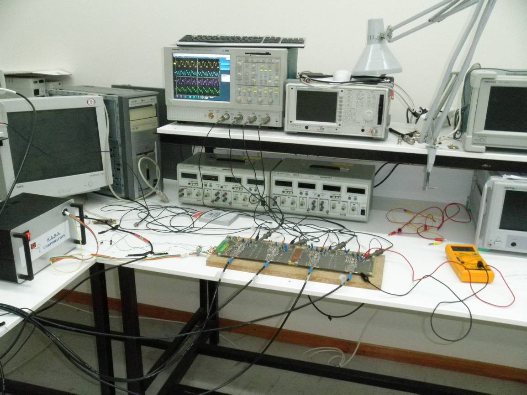
The laboratory is equipped with scientific equipment and instruments such as oscilloscopes, generators, RF, arbitrary RF generators, spectrum analyzers, PCB bonding, BGA, SMT reworks stations etc., which permit reliable experimental measurements. Digital design is possible through Altera PLD’s that programmed with the program Quartus. CPLD’s can be programmed in three ways: schematic diagram, VHDL, State machines or any combination of three methods. There is also the possibility of implementing DSP applications using the Texas Instruments, AVR and Arduino IDE tools.
10MHz-
TDS7154 1.5GHz 4CH Digital Phosphor Oscilloscope, TDS5104 Oscilloscope 4 Channel 1GHz 5GS/s, DIGITAL RF SIGNAL GENERATORS 3413 250 kHz–3.0 GHz
FG-
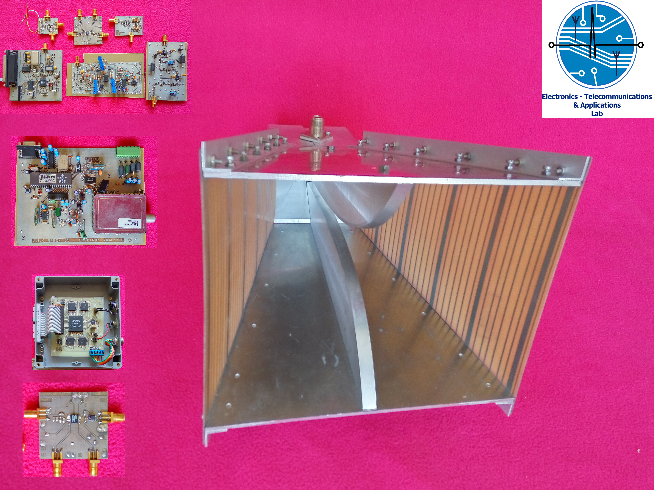

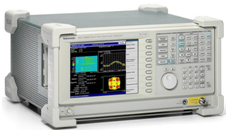
RSA3408A –
- System Integration of WLAN, 3G, and Other RF Systems
- Radar and Pulsed RF Signal Characterization
- RFID System Development and Troubleshooting
- Characterization of Interfering or Unknown Signals in Spectrum Monitoring and Surveillance
- Troubleshooting RF Components, Modules, or Systems
- Getting Answers to Elusive EMI Diagnostic Problems
- General Purpose Phase Noise and Jitter Signal Analysis
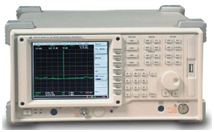
2394A –
- 1 kHz to 13.2 GHz fully synthesized frequency range
- Lightweight, portable and rugged construction at 12 kg
- Excellent TFT color display
- Comprehensive marker facility
- Wide input signal range +30 dBm to –
110 dBm - Semi-
automated measurements - USB 2.0 Interface
- Extremely user friendly MMI reduces risk of operator error
- Auto Tune facility
- GPIB as standard
- AM/FM demodulation
- Internal pre-
amplifier
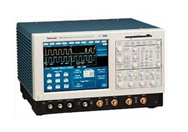
TDS7154 1.5GHz 4CH Digital Phosphor Oscilloscope
- 1.5 GHz Bandwidth
- Up to 20 GS/s Real-
time Sample Rate - Up to 32 Megasamples Memory Depth
- >400,000 Wfms/second Maximum Waveform Capture Rate
- Optional Communications Mask Testing Up to 2.5 Gb/s Rates
- Optional Clock Recovery from Serial Data Streams
- Optional 32-
bit Serial Trigger for Isolation of Patterndependent Effects - 10 MHz Timebase Reference Input for Enhanced Accuracy and Repeatability
- Graphical User Interface
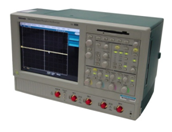
TDS5104 Oscilloscope 4 Channel 1GHz 5GS/s
- 350 MHz, 500 MHz, and 1 GHz Bandwidth Models
- 4 Channels on all Models
- Up to 5 GS/s Sample Rate
- Up to 16 M Record Length
- 100,000 wfms/s Maximum Waveform Capture Rate
- 10.4 in. Bright Display
- Standard Touch Screen on TDS5054B and TDS5104B
- Suite of Advanced Triggers
- Communication Mask Testing
- Pass/Fail Limit Testing
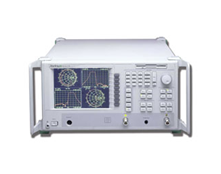
10MHz-
- High performance 2-
port S- parameter measurement engine consisting of a single flexible source and ultra- linear receiver. - Thoroughly characterize your RF components versus time, frequency and power

DIGITAL RF SIGNAL GENERATORS 3413 250 kHz–3.0 GHz
- Fast RF frequency and level settling for
- high speed testing
- High performance vector modulation for improved component test
- Low adjacent channel power for receiver selectivity and amplifier linearity testing
- Fast GPIB response to maximize ATE system performance
- RF waveform creation software
- Wide bandwidth FM and AM modulation capability
- RF optimization modes –
Auto, Low Noise, Low ACP and Higher Power
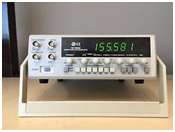
FG-
- Wide frequency range: 0.02Hz to 2MHz
- 4-
in- 1 Sweep, Function & Pulse Generator and Frequency Counter - Versatile Waveforms: Sine, Triangle, Square, Ramp, Pulse, Sawtooth, TTL, CMOS
- Built in 6 digit internal and external counter display (Max. 50MHz)
- Internal and external linear sweep control from 1:1 to 100:1
- Low distortion factor less than 1% at 0.2Hz to 100kHz
- TTL and CMOS Leveled square wave output
- Variable symmetry to generate sawtooth and pulse waveforms
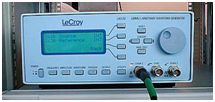
LW120 2-
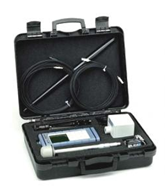
SYSTEM FOR THE ELECTROMAGNETICS FIELDS MEASUREMENT PMM8053B
- Frequency range 100 kHz –
3 GHz - Level range 0.1-
300 V/m - Resolution 0.01 V/m
- Sensitivity 0.15 V/m (typical >0.1V/m)
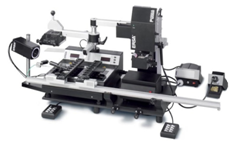
SMT,BGA IR-
- IR 550 with an 800 W heating head with aperture system
- Homogeneous 800 W IR bottom heating
- Closed temperature control circuit with thermocouple or non-
contact sensor - Precision placement system PL 550 (+/-
0.025 mm) with motor zoom AF camera, high- contrast LED lighting and vacuum that switches automatically - Motor zoom reflow process camera for process viewing
- Intuitive operation with or without PC connection
- Process control and documentation via the operator software IRSoft
Suitable for the use of the Dip&Print Station
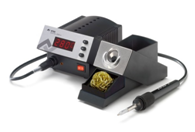
Ersa DIGITAL 2000A soldering station
- Secondary voltage: 24 V~Rating: 80 W
- Control technique: SENSOTRONIC with digital PID control
- Temperature range: stepless 50°C (120°F) –
450°C (840°F) - Function display: 4-
digit LED display with menu control
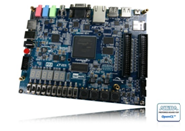
DE1-
- The DE1-
SoC Development Kit presents a robust hardware design platform built around the Altera System- on- Chip (SoC) FPGA, which combines the latest dual- core Cortex- A9 embedded cores with industry- leading programmable logic for ultimate design flexibility. - The DE1-
SoC board has many features that allow users to implement a wide range of designed circuits, from simple circuits to various multimedia projects.
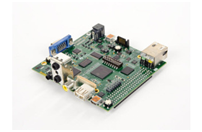
OMAP-
- Integrated floating-
/fixed- point DSP with up to 456 MHz performance; and ARM9 with up to 456 MHz performance - Software, expansion headers, schematics and application demos
- SDKs, DSP/BIOS RTOS, drivers, stacks and protocol, algorithm libraries, flash and boot utilities and StarterWare
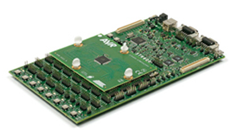
STK600
- AVR Studio 4/AVR32 Studio compatible
- USB Interface to PC for programming and control
- Clock oscillator, adjustable on the fly from AVR Studio (0-
50MHz, 0.1% res) - Serial ISP of tinyAVR and megaAVR devices
- PDI Programming of AVR XMEGA devices
- JTAG programming of 8-
bit megaAVR, 8/16- bit AVR XMEGA and 32- bit AVR UC3 devices - aWire Programming of 32-
bit AVR UC3 devices

TMS320C6713xDSP Starter Kit (DSK)
- Embedded JTAG support via USB
- High-
quality 24- bit stereo codec - Four 3.5mm audio jacks for microphone, line in, speaker and line out
- 512K words of Flash and 16 MB SDRAM
- Expansion port connector for plug-
in modules - On-
board standard IEEE JTAG interface - +5V universal power supply
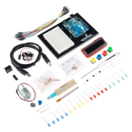
Arduino Inventor’s kit
- Programming and hardware interaction with the Arduino programming language.
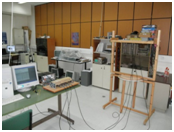
ETA’s LAB MIMO channel sounder
- Measurement mode: full parallel
- center frequency: 2.4 GHz
- Time interval between sequential measurement snapshot 4 ms
- maximum antenna number Tx/Rx: 32/32
Sakkas, Alexandros, Oikonomou, V., Mystridis, G., Christofilakis, V., Tatsis, G., Baldoumas, G., Tritiakis, V., & Chronopoulos, S. K. (2023). A frequency-selective reconfigurable antenna for wireless applications in the S and C bands. Sensors, 23(21), 8912. https://doi.org/10.3390/s23218912
Sakkas, A., Christofilakis, V., Tatsis, G., Baldoumas, G., Evangelou, E. K., & Nistazakis, H. E. (2023). A portable RF signal attenuation testbed. 2023 12th International Conference on Modern Circuits and Systems Technologies (MOCAST). https://doi.org/10.1109/mocast57943.2023.10176583
Mlynarczyk, J., Tritakis, V., Contopoulos, I., Nieckarz, Z., Christofilakis, V., Tatsis, G., & Repapis, C. (2022). Anthropogenic sources of electromagnetic interference in the lowest elf band recordings (Schumann resonances). Magnetism, 2(2), 152–167. https://doi.org/10.3390/magnetism2020011
Tritakis, V., Contopoulos, I., Mlynarczyk, J., Christofilakis, V., Tatsis, G., & Repapis, C. (2022). How effective and prerequisite are electromagnetic extremely low frequency (ELF) recordings in the Schumann resonances band to function as seismic activity precursors. Atmosphere, 13(2), 185. https://doi.org/10.3390/atmos13020185
Gripeos, P. J., Nistazakis, H. E., Tsigopoulos, A. D., Christofilakis, V., & Roditi, E. (2021). Time and Spatial Jitter Influence on the performance of FSO links with DF relays and OC diversity over turbulence channels. Photonics, 8(8), 318. https://doi.org/10.3390/photonics8080318
Baldoumas, G., Peschos, D., Tatsis, G., Christofilakis, V., Chronopoulos, S. K., Kostarakis, P., Varotsos, P. A., Sarlis, N. V., Skordas, E. S., Bechlioulis, A., Michalis, L. K., & Naka, K. K. (2020). Remote Sensing Natural Time analysis of heartbeat data by means of a portable photoplethysmography device. International Journal of Remote Sensing, 42(6), 2292–2302. https://doi.org/10.1080/2150704x.2020.1847351
Skrivanos, A. G., Kosma, E. I., Chronopoulos, S. K., Kouretas, I., Dimopoulos, D., Petrakos, G., Alhazidou, E., Christofilakis, V., Ziavra, N., Peppas, K. P., & Toki, E. I. (2022). Fetus Heart Rate Monitoring: A preliminary research study with Remote Sensing. IEEE Consumer Electronics Magazine, 11(4), 32–44. https://doi.org/10.1109/mce.2021.3097316
Florios, K.; Contopoulos, I.; Christofilakis, V.; Tatsis, G.; Chronopoulos, S.; Repapis, C.; Tritakis, V. Pre-Seismic Electromagnetic Perturbations in Two Earthquakes in Northern Greece. Pure Appl. Geophys. 2020, 177, 787–799, doi:10.1007/s00024-019-02362-6.
Florios, K.; Contopoulos, I.; Tatsis, G.; Christofilakis, V.; Chronopoulos, S.; Repapis, C.; Tritakis, V. Possible Earthquake Forecasting in a Narrow Space-Time-Magnitude Window. Earth Sci Inform 2020, doi:10.1007/s12145-020-00535-9.
Roumelas, G.D.; Nistazakis, H.E.; Gappmair, W.; Gripeos, P.J.; Christofilakis, V. Time Jitter Influence on the Performance of Gamma–Gamma Turbulence FSO Links with Various Modulation Schemes. Journal of Modern Optics 2020, 67, 721–729, doi:10.1080/09500340.2020.1767811.
Tatsis, G.; Christofilakis, V.; Chronopoulos, S.K.; Baldoumas, G.; Sakkas, A.; Paschalidou, A.K.; Kassomenos, P.; Petrou, I.; Kostarakis, P.; Repapis, C.; et al. Study of the Variations in the Schumann Resonances Parameters Measured in a Southern Mediterranean Environment. Science of The Total Environment 2020, 715, 136926, doi:10.1016/j.scitotenv.2020.136926.
Tatsis, G.; Christofilakis, V.; Chronopoulos, S.K.; Kostarakis, P.; Nistazakis, H.E.; Repapis, C.; Tritakis, V. Design and Implementation of a Test Fixture for ELF Schumann Resonance Magnetic Antenna Receiver and Magnetic Permeability Measurements. Electronics 2020, 9, 171, doi:10.3390/electronics9010171.
Christofilakis, V.; Tatsis, G.; Lolis, C.J.; Chronopoulos, S.K.; Kostarakis, P.; Bartzokas, A.; Nistazakis, H.E. A Rain Estimation Model Based on Microwave Signal Attenuation Measurements in the City of Ioannina, Greece. Meteorol Appl 2020, 27, doi:10.1002/met.1932.
Liagkou, V.; Kavvadas, V.; Chronopoulos, S.K.; Tafiadis, D.; Christofilakis, V.; Peppas, K.P. Attack Detection for Healthcare Monitoring Systems Using Mechanical Learning in Virtual Private Networks over Optical Transport Layer Architecture. Computation 2019, 7, 24, doi:10.3390/computation7020024.
Christofilakis, V.; Tatsis, G.; Chronopoulos, S.K.; Sakkas, A.; Skrivanos, A.G.; Peppas, K.P.; Nistazakis, H.E.; Baldoumas, G.; Kostarakis, P. Earth-to-Earth Microwave Rain Attenuation Measurements: A Survey On the Recent Literature. Symmetry 2020, 12, 1440, doi:10.3390/sym12091440.
Christofilakis, V.; Tatsis, G.; Votis, C.; Contopoulos, I.; Repapis, C.; Tritakis, V. Significant ELF Perturbations in the Schumann Resonance Band before and during a Shallow Mid-Magnitude Seismic Activity in the Greek Area (Kalpaki). Journal of Atmospheric and Solar-Terrestrial Physics 2019, 182, 138–146, doi:10.1016/j.jastp.2018.11.009.
Baldoumas, G.; Peschos, D.; Tatsis, G.; Chronopoulos, S.K.; Christofilakis, V.; Kostarakis, P.; Varotsos, P.; Sarlis, N.V.; Skordas, E.S.; Bechlioulis, A.; et al. A Prototype Photoplethysmography Electronic Device That Distinguishes Congestive Heart Failure from Healthy Individuals by Applying Natural Time Analysis. Electronics 2019, 8, 1288, doi:10.3390/electronics8111288.
Votis, C.I.; Tatsis, G.; Christofilakis, V.; Chronopoulos, S.K.; Kostarakis, P.; Tritakis, V.; Repapis, C. A New Portable ELF Schumann Resonance Receiver: Design and Detailed Analysis of the Antenna and the Analog Front-End. J Wireless Com Network 2018, 2018, 155, doi:10.1186/s13638-018-1157-7.
Varotsos, GeorgeK.; Nistazakis, H.E.; Stassinakis, A.N.; Volos, C.K.; Christofilakis, V.; Tombras, G.S. Mixed Topology of DF Relayed Terrestrial Optical Wireless Links with Generalized Pointing Errors over Turbulence Channels. Technologies 2018, 6, 121, doi:10.3390/technologies6040121.
Christofilakis, V.; Tatsis, G.; T. Votis, C.; K. Chronopoulos, S.; Kostarakis, P.; J. Lolis, C.; Bartzokas, A. Rainfall Measurements Due to Radio Frequency Signal Attenuation at 2 GHz. JSIP 2018, 09, 192–201, doi:10.4236/jsip.2018.93011.
Christofilakis, V., Tatsis, G., Votis, C.I., Kostarakis, P., 2017. From Software to UWB Radio Communications: A Brief Introduction. Advances in Communications and Media Research Vol.12, Nova Science Publishers, 2017
